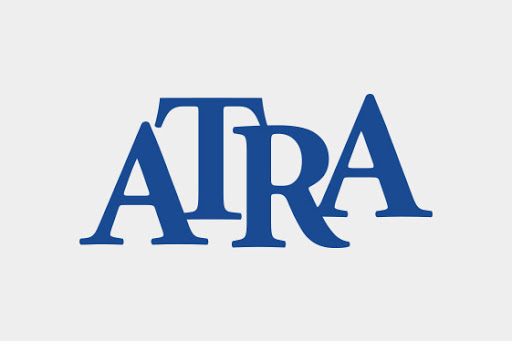
Support for Johnson & Johnson’s Appeal In Massive Oklahoma Opioid Judgment
ATRA files amicus brief in support of Johnson & Johnson’s decision to appeal a 2019 $465 million judgment against the company, warning against the state attorney general’s expansive use of public nuisance law.
As Johnson & Johnson appeals last summer’s $465 million judgment in the opioid trial before the Oklahoma Supreme Court, business organizations and other groups are showing their support for the appeal by filing friend of the court briefs, or amicus briefs.
The American Tort Reform Association filed an amicus brief today in support of Johnson & Johnson’s decision to appeal the judgment, warning against the state attorney general’s expansive use of public nuisance law.
“[Opioid addiction] calls for a response from public health officials and legislators – not the courts.“
Tiger Joyce, President, American Tort Reform Association
“Opioid addiction is a serious problem and it demands serious policy-based solutions,” ATRA President Tiger Joyce said. “But it calls for a response from public health officials and legislators – not the courts. If this judgment is allowed to stand, public nuisance law’s applicability will grow as states look for additional litigation targets to address public health problems.”
Public nuisance law historically has been applied in cases involving land use and public spaces. The court disregarded a century of Oklahoma state case law which applied nuisance claims to resolve property disputes – not product sales.
Oklahoma’s Attorney General Mike Hunter claimed in his lawsuit that Johnson & Johnson created a public nuisance and is responsible for the opioid crisis. However, Hunter opposed similar use of public nuisance law in another context. Hunter joined 17 other state attorneys general in an amicus brief last year submitted to the 9th U.S. Circuit Court of Appeals opposing the use of public nuisance law against energy producers to pursue claims related to climate change.
That brief states that “the issues surrounding climate change and its effects – and the proper balance of regulatory and commercial activity – present political questions that cannot be resolved by judicial decree.” Further, Hunter authored a July 2018 op-ed entitled, “Lawsuits are not the answer to climate change.” In this piece, he explicitly stated, “you cannot litigate what legislators refuse to legislate and regulators refuse to regulate.”
“You cannot litigate what legislators refuse to legislate and regulators refuse to regulate.”
Oklahoma Attorney General Mike Hunter, who spearheaded litigation against opioid manufacturers
“AG Hunter’s opioid lawsuit and last summer’s judgment dramatically expanded public nuisance law and caused great concern for manufacturers of all products,” Joyce said. “The fear now is that other industries, including Oklahoma’s own oil and gas producers, may be targeted for a similar public nuisance claim on issues like climate change.”
That concern is not theoretical: Oklahoma trial lawyers seeking to capitalize on the trial court’s decision already have filed public-nuisance claims against e-cigarette manufacturers for the vaping “epidemic.”
ATRA’s amicus brief points out that in the search for revenue sources, states may even sue smartphone manufacturers because their devices created a generation of distracted drivers who increased the need for emergency services.
“Oklahoma was already deemed a Judicial Hellhole – the state shouldn’t invite any additional misuse of the court system,” Joyce said. “I urge the Oklahoma Supreme Court to reverse Judge Balkman’s decision and make it clear that traditional limits on public nuisance claims still apply in Oklahoma.”
Oklahoma’s interpretation of public nuisance law makes the state a national outlier and contributed to its No. 8 rankings in the American Tort Reform Foundation’s Judicial Hellholes report. Use of a public nuisance claim with regard to solving the opioid crisis was unsuccessful in North Dakota where a judge dismissed a claim against Purdue Pharma.
ATRA’s amicus brief was filed in conjunction with the U.S. Chamber of Commerce and is available online here.
Want more updates on civil justice reform? Sign up for ATRA’s occasional email updates.
Latest News
View all news
‘Highly Unusual’ Rehearing of Louisiana Case Raises Judicial Independence Concerns
Louisiana Supreme Court Waffles Under Political Pressure, ATRA Brief Urges Court to Stand Strong
America’s Top 9 Worst Judicial Hellholes®
Left unchecked, these jurisdictions will continue dragging down economic growth and undermining justice through rampant lawsuit abuse.
ATRA Commends J&J’s Plan to Resolve Notorious Talc Lawsuits
Claimants Given Opportunity to Vote on Plan; Judge to Reconsider Scientific Validity of Plaintiffs’ Experts
The Lab Whose Junk Science Is Fueling a Frenzy of Litigation
Legitimate consumer protection demands sound science and impartial analysis — not distorted data designed to manufacture lawsuits.
Lawsuit Advertising Frenzy Fuels Georgia’s Litigation Epidemic
Law Firms Spent $168M+ on 2.2M Ads in Georgia
Trial Lawyers’ Dual Grip on Pennsylvania Politics and Public Opinion Revealed in New ATRA Reports
ATRA’s Latest Studies Reveal Financial Influence and Lack of Transparency in Pennsylvania’s Campaign Finance Systems



